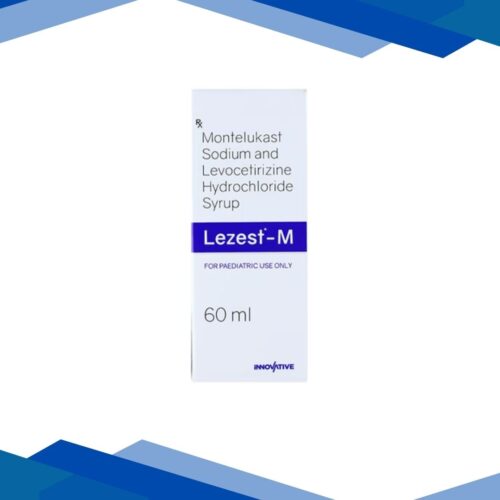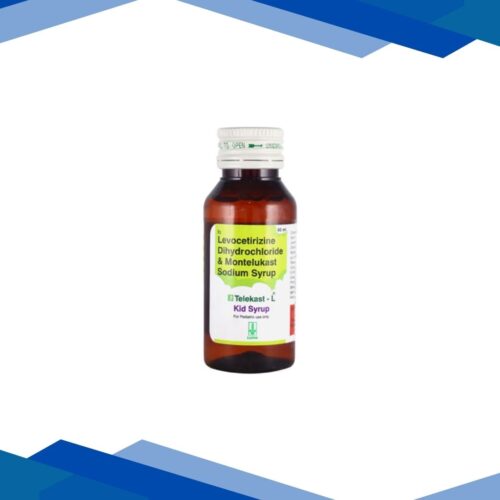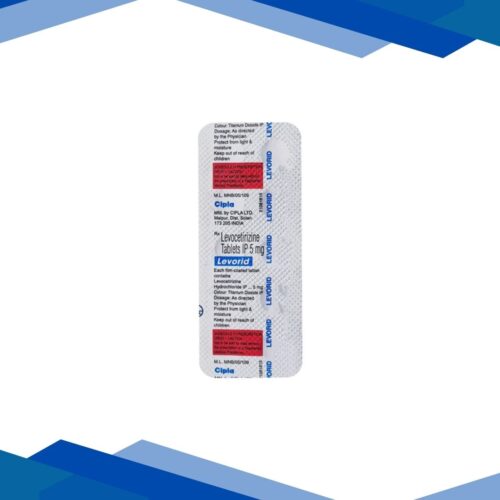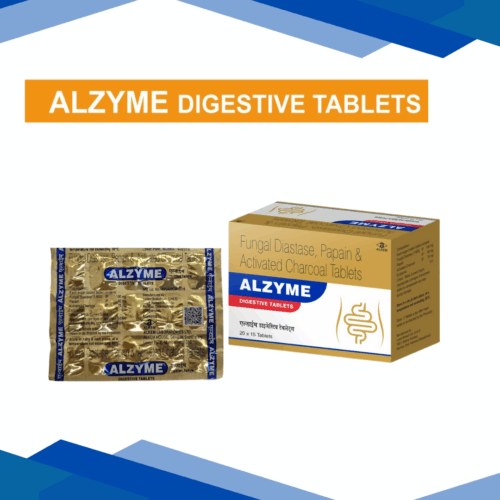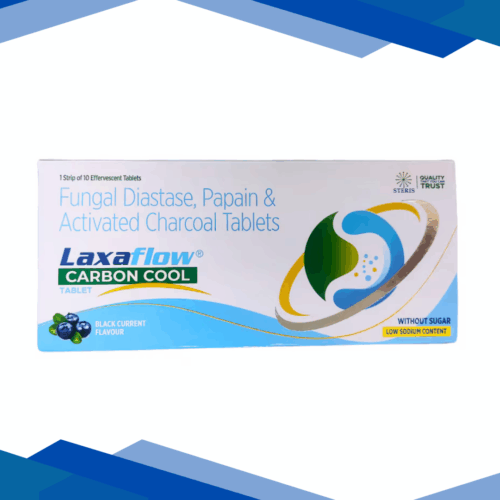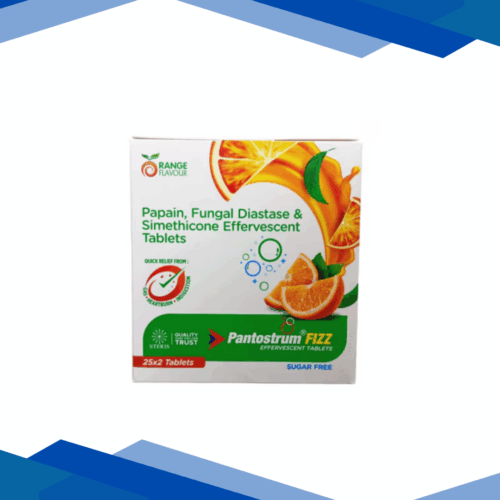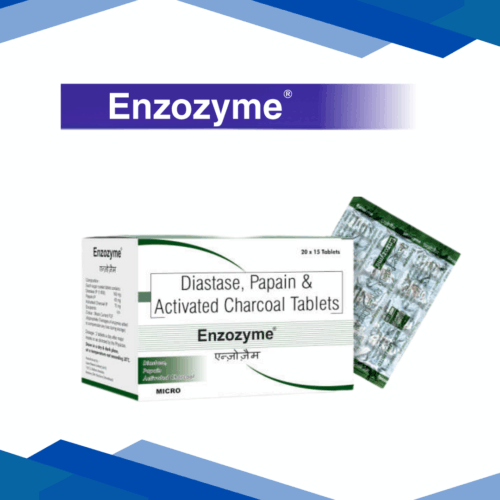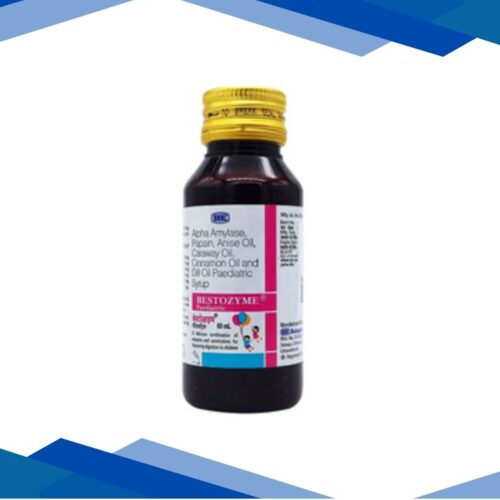Telekast L Kid Syrup 60ml
RINOSOLVIN 2.5/4 Syrup 60ml
Allrite 5mg Tablet 10’S
Etazyme
❌ Due to high demand, this product is currently out of stock. New stock will be available shortly.
👉 Click here to Buy Same Salt medicine
This combination is used to improve digestion, relieve gas, bloating, and indigestion, and help remove toxins from the digestive tract.
Activated Charcoal
ACTIVATED CHARCOAL
Overview:
Activated charcoal is a medicine that works like a magnet for harmful stuff in your stomach. It grabs onto toxins or chemicals from things like poison or overdoses and helps your body flush them out safely. Sometimes, it’s also used to relieve gas or bloating.It works like a tidy-up helper in your digestive system, making things safer and easier.
Classification: Adsorbent
Uses:
Activated charcoal is mainly used to treat poisoning or drug overdoses by trapping harmful substances in the stomach and preventing them from entering the body. It’s also sometimes used to relieve gas, bloating, or indigestion by binding to excess gas in the digestive system. Essentially, it helps clean up unwanted chemicals and make your digestive system more comfortable.
How it works:
Activated charcoal works by binding (adsorbing) toxins and harmful substances in the stomach and intestines. By sticking to these substances, it prevents them from being absorbed into the body and helps your body flush them out safely through your stool.It works like a safety net, catching toxins before they can affect your body.
Dosage:As prescribed by your doctor.
Side Effects:
Black or dark-colored stools
Constipation or occasionally diarrhea
Stomach discomfort, cramps, or nausea
Allergic reactions like rash, itching, or trouble breathing
Precautions:
When using Activated Charcoal, it’s important to follow your doctor’s instructions carefully. Don’t take it at the same time as other medicines, because it can stop them from working properly. Drink plenty of water to avoid constipation, and let your doctor know if you have intestinal blockages, trouble swallowing, or severe dehydration. Pregnant or breastfeeding women should check with their doctor first. Stop taking it and seek help immediately if you notice any allergic reactions like rash, swelling, or trouble breathing.
Disclaimer:This content is for informational purposes only. Always consult a healthcare provider for medical advice and proper dosage.
Fungal Diastase
FUNGAL DIASTASE
Overview:
Fungal Diastase is a digestive enzyme that helps break down complex carbohydrates and starches from food into simpler sugars, making them easier for the body to absorb. It is usually prescribed to improve digestion in people who have problems like bloating, indigestion, or loss of appetite. Often, it is combined with other enzymes such as pepsin to give broader digestive support.
Classification: Digestive Enzyme
Uses:
Helps relieve indigestion and improve digestion after heavy meals.
Reduces bloating, gas, and abdominal discomfort.
Supports people with loss of appetite or poor digestion.
Often given with other enzymes to aid in better nutrient absorption.
It is used in conditions like dyspepsia or digestive enzyme deficiency.
How it works:
Fungal Diastase functions by converting complex carbohydrates such as starch and glycogen into more easily digestible sugars like maltose and dextrins .This enzymatic breakdown enhances the digestion and absorption of carbohydrates in the gastrointestinal tract, thereby relieving symptoms of indigestion, flatulence, and abdominal discomfort.
Dosage: As prescribed by your doctor.
Side Effects:
- Nausea
- Stomach discomfort or cramps
- Bloating or excess gas (flatulence)
- Diarrhea
- Mild skin rash or itching (rare)
Precautions:
Before taking Fungal Diastase, make sure you aren’t allergic to it. People with serious stomach or intestinal issues should use it carefully, and children or older adults should take only the recommended dose. If you’re pregnant or breastfeeding, check with your doctor first. Also, tell your doctor about any other medicines or digestive supplements you’re taking to avoid interactions.
Disclaimer:This content is for informational purposes only. Always consult a healthcare provider for medical advice and proper dosage.
Papain
PAPAIN
Overview:
Papain is a natural enzyme found in papaya that aids in the body’s protein digestive process, making it repulsive to the body,providing a smooth easy digestive system. It is also applied in some cases from medicinal and cosmetic point of view to clean wounds and to promote evolution of the healing process, due to its kind and non-aggressive action. Because it is a fruit-derived product, it’s mostly safe when used in moderation.
Classification: Proteolytic enzyme
Uses:
Papain is often used to support healthy digestion by helping break down proteins from food into smaller, easier-to-digest parts. It may also be used in some wound-healing preparations, to reduce swelling, or to ease minor digestive discomfort like bloating or indigestion.
How it works:
Papain is effective because it functions as an aid to your digestion. It digests food proteins into small easily digestible particles, and facilitates the absorption of nutrients by your body. On a wound, it tenderly extracts dead tissue and makes the area cleaner and stitches the body to heal quicker and more efficiently.
Dosage:
As prescribed by your doctor.
Side Effects:
- Mild stomach upset
- Nausea
- Diarrhea
- Allergic reactions (such as skin rash, itching, or swelling)
Precautions:
When using papain, it’s best to stick to the recommended dose and not overdo it. If you’re allergic to papaya or similar enzymes, you should avoid it, as it can cause reactions like rash, swelling, or trouble breathing. Pregnant or breastfeeding women should check with their doctor before using it. Following these precautions helps you get the benefits safely while avoiding any unwanted side effects.
Disclaimer:This content is for informational purposes only. Always consult a healthcare provider for medical advice and proper dosage.

